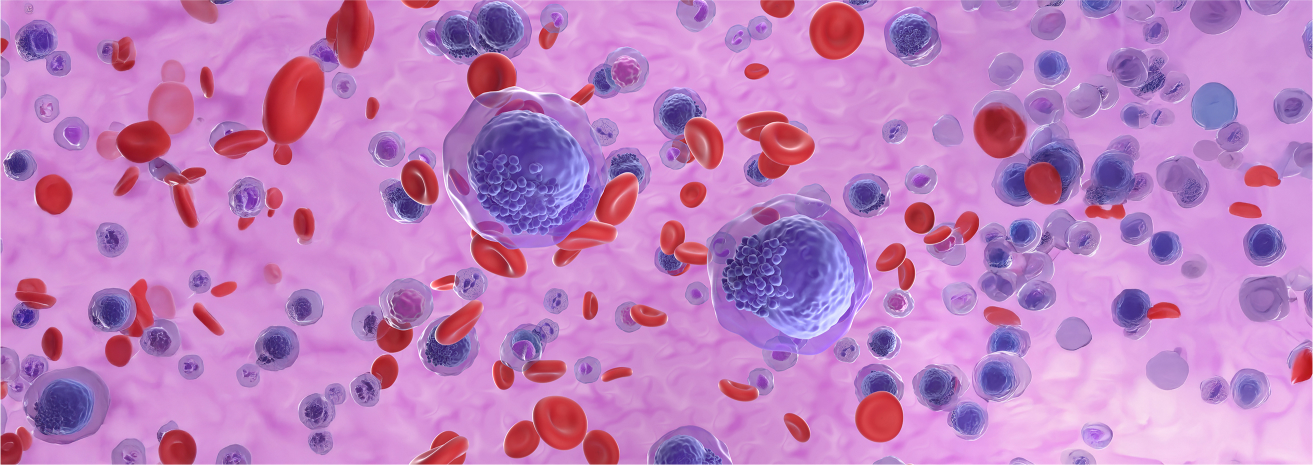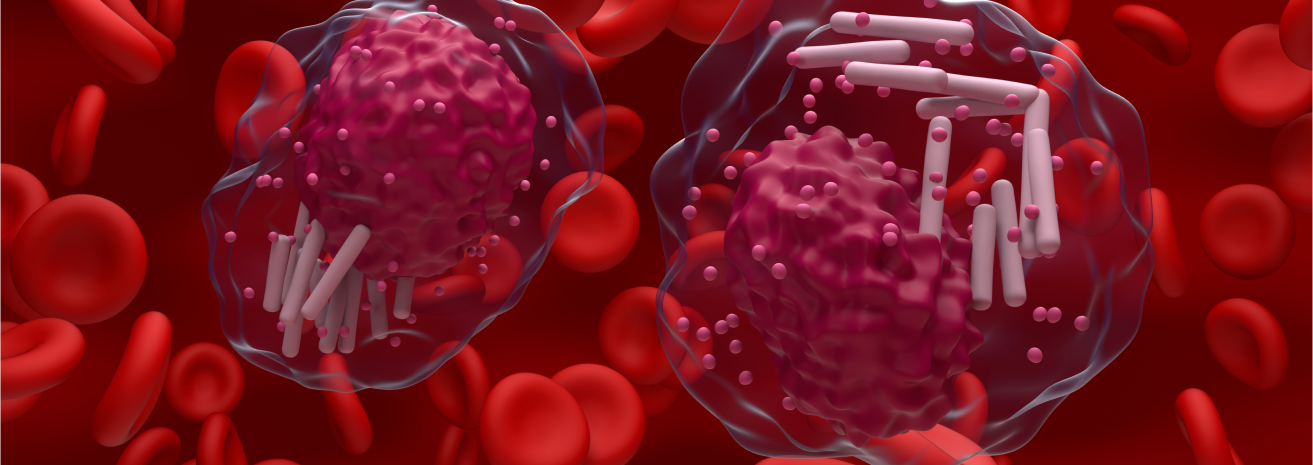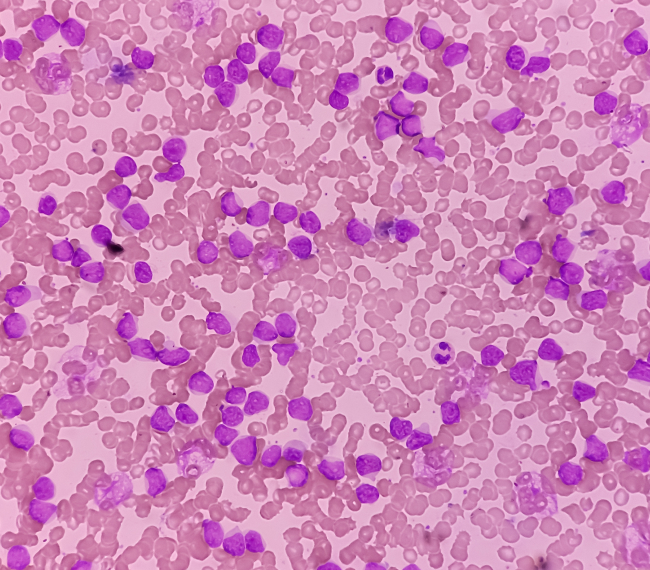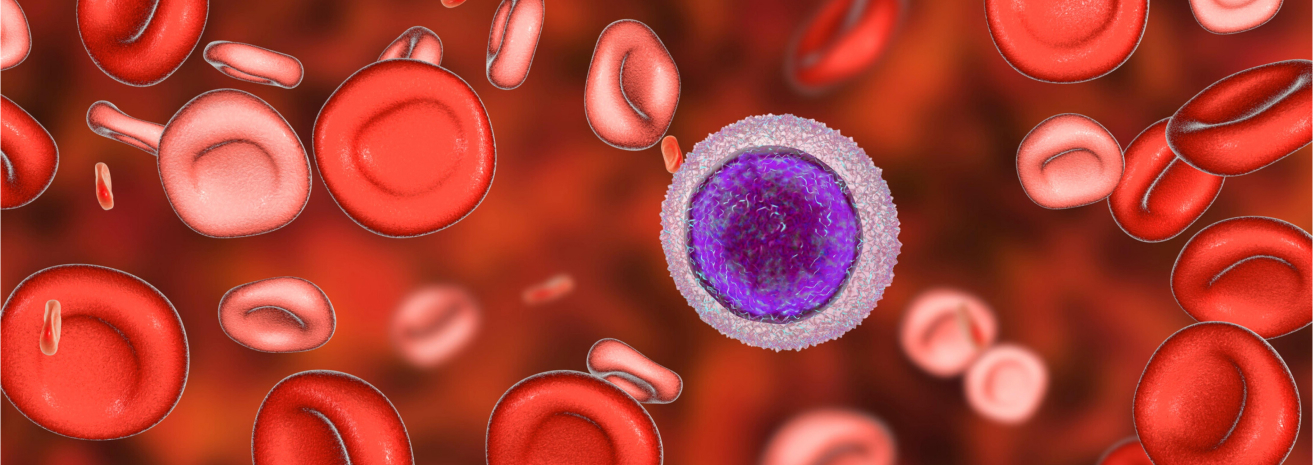Leukemia Cancer

Leukemia is a type of cancer that affects the blood and bone marrow, where blood cells are produced. It typically results in the overproduction of abnormal white blood cells, which can crowd out healthy blood cells and interfere with their function. There are several types of leukemia, including acute lymphocytic leukemia (ALL), acute myeloid leukemia (AML), chronic lymphocytic leukemia (CLL), and chronic myeloid leukemia (CML). At Burjeel Cancer Institute, we provide advanced care for leukemia patients, offering cutting-edge treatments such as chemotherapy, targeted therapy, immunotherapy, and stem cell transplantation.
Symptoms and Risk Factors
- Frequent infections.
- Fatigue or weakness.
- Unexplained weight loss.
- Easy bruising or bleeding.
- Fever or chills.
- Bone pain or tenderness.
- Swollen lymph nodes, especially in the neck or armpits.
- Night sweats.
- Shortness of breath.
- Pale or sallow skin.

Risk Factors for leukemia include
Age
The risk of developing leukemia increases with age, especially for chronic types like CLL and CML.
Previous Cancer Treatment
People who have undergone chemotherapy or radiation therapy for other cancers are at increased risk.
Genetic Disorders
Certain inherited genetic syndromes, such as Down syndrome, can increase the risk of leukemia.
Exposure to Chemicals
Long-term exposure to certain chemicals, such as benzene, increases the risk.
Family History
A family history of leukemia may increase the risk, especially for chronic forms.
Radiation Exposure
High levels of radiation exposure, either from medical treatments or environmental sources, can increase the risk.
Diagnostic Procedures
Leukemia is diagnosed through a variety of tests and procedures to determine the type and stage of the disease. At Burjeel Cancer Institute, we offer
Blood Tests
A complete blood count (CBC) to check for abnormal levels of white blood cells, red blood cells, and platelets, which can indicate leukemia.
Bone Marrow Biopsy
A sample of bone marrow is taken from the hip bone or another site to confirm the diagnosis and identify the type of leukemia.
Cytogenetic Testing
This test looks for genetic changes or abnormalities in the leukemia cells, helping to classify the type of leukemia and guide treatment decisions.
Flow Cytometry
Used to analyze the characteristics of the cancer cells, including their type and maturity.
Molecular Testing
Identifies specific genetic mutations that can guide targeted therapy for certain types of leukemia, such as the BCR-ABL mutation in CML.
Imaging Tests
CT scans, MRI, and ultrasound may be used to detect the spread of leukemia to other organs, such as the spleen or lymph nodes.

Treatment Options
Radiation Therapy
- Total Body Irradiation (TBI): Often used before a stem cell transplant to destroy cancerous cells in the bone marrow and prepare the body for the new stem cells.
- Targeted Radiation Therapy: In certain cases, radiation may be used to treat leukemia that has spread to specific areas, such as the brain or spleen.
Stem Cell Transplantation
- Autologous Stem Cell Transplant: The patient’s own healthy stem cells are collected and re-infused after high-dose chemotherapy to rebuild the bone marrow.
- Allogeneic Stem Cell Transplant: Stem cells from a donor are infused into the patient to replace the damaged bone marrow and restore healthy blood cell production, often used for high-risk or relapsed leukemia.
Immunotherapy
- CAR T-Cell Therapy: A type of immunotherapy that re-engineers a patient’s T cells to target and destroy leukemia cells, used primarily for relapsed or refractory ALL.
- Monoclonal Antibodies: Drugs that help the immune system recognize and destroy leukemia cells. Blinatumomab is an example used in ALL.
Targeted Therapy
- Tyrosine Kinase Inhibitors (TKIs): Drugs such as imatinib (Gleevec) and dasatinib are used to block specific proteins involved in the growth of leukemia cells, particularly in CML and ALL.
- FLT3 Inhibitors: Targeted therapies for AML patients with specific genetic mutations like FLT3.
Chemotherapy
- Induction Therapy: High-dose chemotherapy is often used to achieve remission in patients with acute leukemia, targeting the rapidly dividing cancer cells in the blood and bone marrow.
- Consolidation Therapy: After remission is achieved, further chemotherapy is used to eliminate any remaining leukemia cells and prevent relapse.
- Oral and Intravenous Chemotherapy: Various chemotherapy regimens are used depending on the type of leukemia and the patient’s overall health.
Multidisciplinary Approach
Leukemia treatment requires collaboration among a diverse team of specialists, including
- Hematologists
- Medical Oncologists
- Radiation Oncologists
- Stem Cell Transplant Specialists
- Immunotherapy Experts
- Genetic Counselors
- Radiologists
- Pathologists
- Oncology Nurses
- Palliative Care Specialists
This multidisciplinary team works together to provide personalized treatment plans that address the patient’s specific type of leukemia, stage, and overall health.


Supportive Care and Patient Services
We offer a range of supportive care services to help leukemia patients manage their treatment and maintain their quality of life
Infection Prevention and Management
Due to the risk of infections during leukemia treatment, we offer protective measures and treatments to prevent and manage infections.
Blood Transfusions
Regular transfusions of red blood cells and platelets may be needed during treatment to support healthy blood counts.
Palliative Care
Symptom management and quality-of-life support for patients with advanced or relapsed leukemia.
Psychosocial Support
Counseling services for patients and their families to cope with the emotional and psychological challenges of a leukemia diagnosis.
Physical Rehabilitation
Programs to help patients regain strength and improve mobility after treatment.
Nutritional Counseling
Tailored dietary advice to help patients maintain strength and manage side effects during chemotherapy or stem cell transplantation.
Patient Journey
We guide leukemia patients through every step of their treatment journey, ensuring personalized care and support
Initial Consultation
A comprehensive evaluation with the leukemia care team, including diagnostic tests to determine the type and stage of leukemia.
Personalized Treatment Plan
Based on the patient’s diagnosis, preferences, and overall health, a customized treatment plan is developed.
Treatment and Support
Patients receive chemotherapy, targeted therapy, immunotherapy, or stem cell transplantation as part of their treatment plan, supported by a multidisciplinary team.
Follow-Up Care
After treatment, patients receive regular follow-ups to monitor their recovery, assess treatment response, and manage long-term health concerns.












